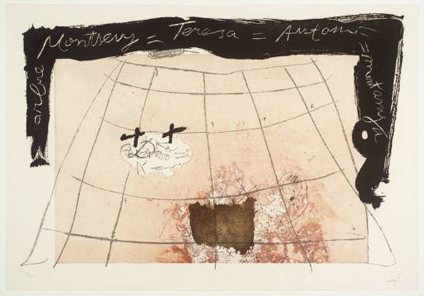Andrew Graham-Dixon on Omnibus's Tapies film
The grand old man of Spanish contemporary art, Antoni Tapies, came across on last night's Omnibus profile (BBC 2) as a man deeply at odds with his times. ''In our world,'' he intoned gravely, ''in which religious images are losing their meaning, in which our customs are getting more and more secular, we are losing our sense of the eternal. I think it's a loss that has done a great deal of damage to modern art''. His words hung enigmatically in the air.
This was a film shaped by the unqualified admiration of those who made it for their subject. Tapies' comments on himself and his work were allowed to stand unchallenged; his words, dubbed into English by Bob Peck, were the only ones heard for the duration of the programme. The Omnibus team, having tracked Tapies to his remote lair on the Costa Brava, seemed in awe of their prey. This translated into a film whose main thrust seemed anthropological, rather than critical or historical: Tapies, filmed in his own habitat, giving an account of himself with the minimum of outside intervention.
In his studio, Tapies attacked a canvas with a variety of brooms, brushes and gouging instruments. His techniques and his use of unconventional materials stemmed, he explained, from his desire to ''set traps for myself'' - these were ways of forcing himself to subordinate reason to the unconscious, the source of all inspiration. ''Painting,'' he announced, ''is a return to origins.'' The Omnibus team did a bit of getting back to origins themselves at this point. They filmed the thunderstorm which - the cutting suggested - was raging outside Tapies' studio while the maestro, possessed by his own elemental drives, agonised over the creative process indoors. This was the closest the...


